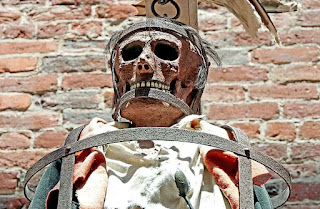Here are The numbers of Japanese war criminals executed
Before the courts-martial and military commissions recessed at the conclusion of all trials, some 5,600 Japanese had been prosecuted in more than 2,200 trials. Of these men–and a few women–more than 4,400 were convicted, and about 1,000 were executed. So the number is about 1,000.
During World War II, numerous war crimes were committed by Japanese soldiers, leading to widespread atrocities and human rights abuses. After the war, efforts were made to hold individuals accountable for their actions, leading to various trials and executions. While an exact number is difficult to determine due to limited documentation and conflicting sources, it is estimated that thousands of Japanese soldiers were either executed or faced other forms of punishment for their involvement in war crimes.
One significant event where war crimes were exposed was the Tokyo Trials, also known as the International Military Tribunal for the Far East. These trials took place from 1946 to 1948 and aimed to prosecute high-ranking Japanese officials responsible for planning and executing war crimes. During these trials, several individuals were found guilty and sentenced to death, including General Hideki Tojo, who served as the Prime Minister of Japan during a significant portion of the war.
In addition to the Tokyo Trials, there were numerous other trials held at a regional level to prosecute lower-ranking soldiers involved in war crimes. The majority of these trials took place in countries that had been occupied by Japanese forces, such as China, Korea, and the Philippines. It is estimated that hundreds, if not thousands, of Japanese soldiers were tried and executed by these countries for their war crimes.
One notorious incident that led to the execution of Japanese soldiers occurred during the Battle of Manila in 1945. Japanese troops systematically destroyed the city and committed horrific acts against Filipino civilians and prisoners of war. As the battle concluded, American forces captured and prosecuted many Japanese soldiers involved in these war crimes. Estimates suggest that around 100 Japanese soldiers were executed for their involvement in the atrocities committed during the Battle of Manila.
Furthermore, the Nanking Massacre, also known as the Rape of Nanking, was another tragic event during which Japanese soldiers committed widespread atrocities against Chinese civilians and disarmed soldiers. Although an exact number of executions resulting from this event is unknown, it is believed that many perpetrators were prosecuted and executed for their involvement in the massacre.
.jpeg)
.png)

Comments
Post a Comment